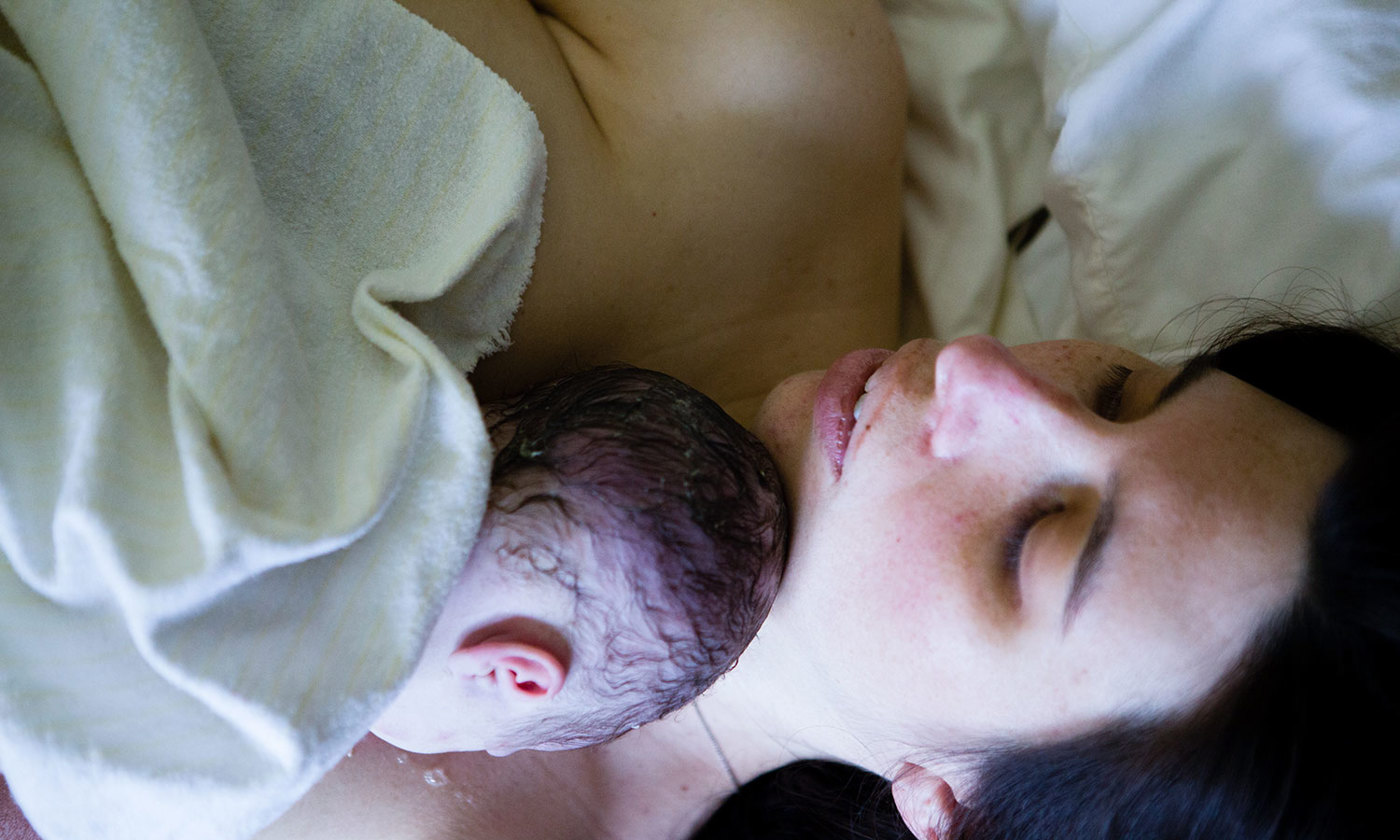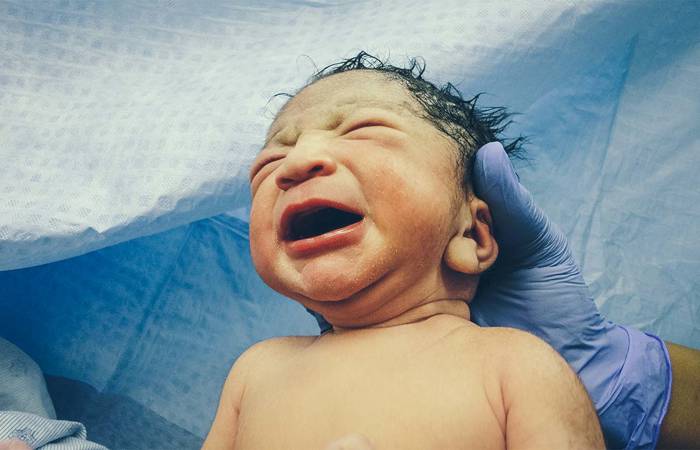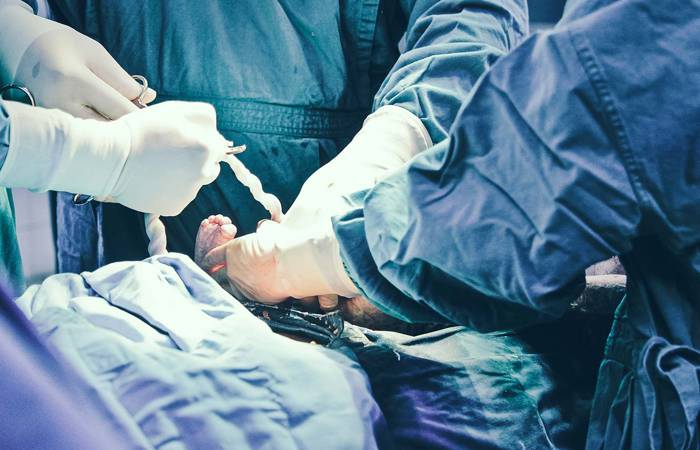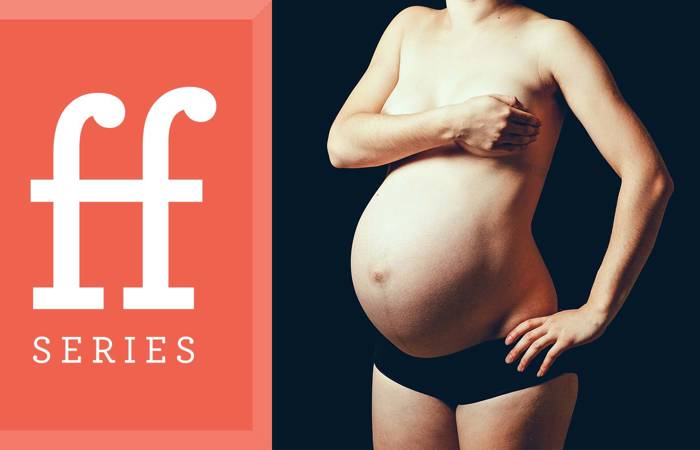Like what you see?
Sign up to receive more free parenting advice.
Thank you for subscribing to our newsletter!
Lifestyle

Credit: iStock.com/Miljan Živković
Every new parent is faced with the question ‘Should I give birth at home?’, and for some the answer is simple and for others more complex. Home births used to be the standard practice, however with the advancement of medical science, there has been a big shift to hospital births.
A lingering negative view of home births as an unsafe option for mothers, seems to have taken hold. However, hospitals across the country are recognising the importance in providing mothers with more choices when it comes to birthing and ensuring a safe home birth is available to them.
In 2019, only 0.3 per cent of Australian births were planned home births.
The National Publicly funded Homebirth Consortium has established a network of publicly-funded homebirth models of care in Australia that includes 17 hospital programs nationally.
“Women who choose to birth at home have generally been found to believe in birth as a natural process and be confident in their ability to give birth vaginally with the support of a known health care professional,” says Susan Freiberg, Canberra Health Services Executive Director, Women Youth and Children.
“A desire to avoid unnecessary interventions, to have continuity of care and be in the comfort of their home with the support people of choice are frequently mentioned as reasons for planning a homebirth.”
Another key factor that might be responsible for raising the interest in home births is the pandemic.
An Australian study conducted in 2021 asked women about the influence of the pandemic on their interest in home birth.
Twenty-three per cent of women indicated that the effects of the pandemic influenced their interest in a planned home birth.
“Women overwhelmingly reiterate a desire for choice and autonomy,” adds Ms Freiberg.
“A home birth with a registered midwife is a safe choice for women who are deemed to be at low risk of complications during pregnancy, labour, birth and the postpartum period.”
A safe home birth
“For all safe home births, midwives undergo an education and credentialing process to ensure a home birth is provided in a safe, effective and consistent way,” says Ms Freiberg.
Women who are experiencing a healthy and uncomplicated pregnancy and who meet the strict criteria can be eligible for a home birth.
As with all births, there are risks involved.
Ms Freiberg explains that all midwives have training in advanced neonatal resuscitation in collaboration with training through the Neonatal Intensive Care Unit (NICU) and home birth midwives have the training and equipment needed to manage emergencies until help arrives.
For all homebirths, the ACT Ambulance is notified that a publicly-funded home birth is occurring and at the time of labour, the midwives contact the Team Leader at the Centenary Hospital to notify them that a home birthing woman is in labour, to ensure everyone is at the ready, should mother or baby require hospital care during or immediately after the birth.
In the event of an emergency the ACT Ambulance Service will attend as quickly as possible to assist the midwives to safely transfer the mother and her baby to the Centenary Hospital.
Women overwhelmingly reiterate a desire for choice and autonomy.Susan Freiberg
Stay up to date with the latest news and articles from First Five Years
Thank you for subscribing to our newsletter!
The benefits of a home birth
Home births tend to be associated with more positive maternal outcomes, significantly lower rates of all obstetric interventions and higher rates of spontaneous vaginal birth1.
According to the CHS, when comparing home births and hospital births, the evidence shows that the rates of unassisted vaginal birth are higher for women who have a planned home birth.
The rates of caesarean section and instrumental birth are lower.
The rates of haemorrhaging and severe perineal trauma are lower.
Apgar scores for home birth babies are typically in line with those for hospital births. The Apgar score is a measure of a baby’s transition to life after birth and can determine whether they will require admission to a neonatal nursery for further treatment.
Finally, women having their first baby do not experience higher rates of adverse perinatal and maternal outcomes.
In a 2019 Australian study, the authors found that planned home births had the highest rate of normal deliveries (95 per cent) compared to hospital births (78 per cent).
In a 2018 Australian study, the authors found women who had a home birth were two-thirds less likely to have a caesarean section, require forceps or require a vacuum delivery.
They were also half as likely to have severe tearing at birth.
Hospital births during the pandemic
While hospital wards are straining under the pressure of treating COVID-19 patients, the pandemic may make some pregnant women wary of giving birth in hospitals.
“CHS cannot speak on behalf of all hospitals, however, at the Centenary Hospital for Women and Children, currently we have visitor restrictions in place to minimise the impact of COVID-19 in the hospital,” says Ms Freiberg.
“CHS ensures our mothers-to-be are well aware of the COVID-19 public health measures and clinical health measures in place so that they can arrive and feel comfortable about the arrangements in place for everyone’s safety.”
The Royal Australian and New Zealand College of Obstetricians Gynaecologists (RANZCOG) identifies hospitals as the safest place for birth in Australia and New Zealand, while recognising that women should be supported in having an informed choice on the risks and benefits in all aspects of their maternity care, including a planned home birth.
[1] Planned private homebirth in Victoria 2000–2015: a retrospective cohort study of Victorian perinatal data






